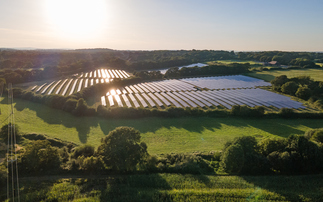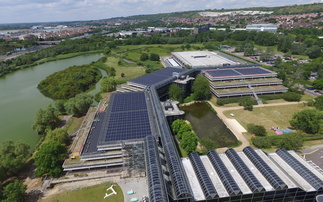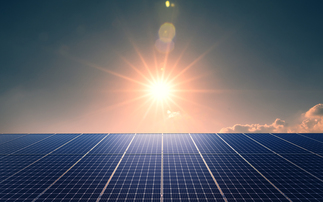Retail giant to donate €1 for solar lighting in refugee camps for every LED lightbulb sold until April
IKEA plans to provide hundreds of solar lamps and fuel-efficient cooking stoves to refugee camps across the world, as part of a major new fundraising campaign.
The Swedish furniture retailer launched the two-month campaign this week, pledging to donate €1 from the IKEA Foundation to the United Nations Refugee Agency for every LED light bulb the stores sell until 29 March.
All funds raised will be used to buy solar lanterns, solar street lights, and other renewable energy technologies for UN refugee camps in Ethiopia, Chad, Bangladesh, and Jordan.
With around 3.45 million people living in refugee camps in these four countries alone, IKEA estimates its campaign could have a considerable impact on greenhouse gas emissions and development efforts.
According to the company, each solar street light could provide lighting for up to 300 refugees, while a solar lantern or improved cooking stove could provide light and energy for a family of five.
"Life in a refugee camp can be very hard, particularly for children," said Per Heggenes, chief executive of IKEA Foundation. "The absence of powered light limits everyday activities we take for granted such as sharing a meal or doing your homework. It impacts safety and security and the ability for families to generate an income."
The news came in the same week as three major providers of clean cookstove schemes launched a carbon finance loan fund to boost investment in their market.
The fund, created by the Global Alliance for Clean Cookstoves, Gold Standard Foundation, and Nexus-Carbon for Development, aims to reduce the time taken to access funding to new clean technologies.
Clean cookstoves are significantly more efficient than the traditional stoves or open fires used in many developing world communities, leading to reduced carbon emissions, lower levels of domestic air pollution and reduced deforestation. But projects to distribute the stoves often struggle to access the carbon offsets that can finance their roll out, creating a delay of up to two years between application and approval of funding.
As a result, the three organisations have launched a new fund to provide initial finance for projects in an attempt to help further catalyse the market.
"The fund is designed to take on financial risk associated with the carbon process by offering a loan to project developers," said Marion Verles, executive director of Nexus, fund manager for the fund. "It will not purchase emission reductions but these will be used as collateral to the loan. This innovative approach has been used by Nexus since 2010 and results show that the model increases the value flowing back to projects."









